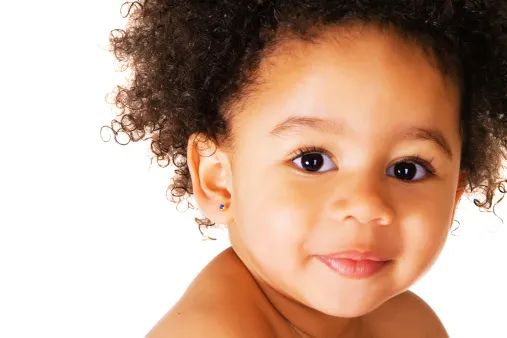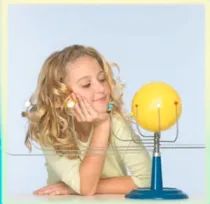Stages of Development and How Children Learn
Maria Montessori observed that all children, regardless of culture or locale, experience the same stages of development at approximately the same age. It is easy to see that children everywhere learn to walk and talk, lose baby teeth, etc., at approximately the same age. Developmental milestones that take place in the minds of children are harder to see, but no less real or important. Maria Montessori divided these developmental stages into three main stages. She called the first of these stages ‘The Construction of Individuality’ or the Absorbent Mind Stage.

Birth to Age Six: The Construction of Individuality and the Absorbent Mind
From birth to around six years-of-age, children have an absorbent mind. This means that they learn effortlessly, soaking in huge amounts of information as easily as a sponge soaks up water. Montessori explains that during this stage, children are ‘constructing their individuality.’ She further breaks this stage into two sub-stages: the unconscious and conscious stage. Children under the age of three absorb information without conscious effort. He (or she) is developing his basic faculties through mimicry. Children in this phase will mimic just about everything they see:
“Impressions do not merely enter a child’s mind; they form it.” - Maria Montessori
Then, from three to around six-years-old, children pass into a more conscious stage of development. They still have sponge-like minds that absorb information easily, but now they will consciously seek certain experiences. Children in this phase are expanding their newly developed faculties and abilities. They will demonstrate an innate (and often intense) desire to make choices for themselves and to accomplish tasks independently. Maria Montessori referred to this as the ‘help me do it myself’ stage'.

Six to Twelve Years Old: Acquisition of Culture and The Cosmic Plan
At about six or seven years old, children make a huge transition from the Absorbent Mind Stage into the Reasoning Mind Stage. Children in this stage become group oriented and like to work collaboratively. The question “why” replaces the “what” of earlier stages as they become interested in moral questions. Children at this age begin to use their imaginations more, and to wonder what part they will play in the bigger scheme of life. Maria Montessori called this The Cosmic Plan.
“The child will develop a kind of philosophy which teaches this unity of the universe; this is the very thing to motivate his interest and to give him a better insight into his own place and task in the world and at the same time presenting a chance for the development of his creative energy.” - Maria Montessori

Twelve to Eighteen Years Old: The Development of Personality and Earth Children
As children enter into adolescence, they develop what Montessori called a ‘social consciousness.’ This presents itself in the form of a new sense of self-awareness and a concern with his or her societal role in life. According to Montessori’s curriculum for this age--which she called ‘Erdkinder’ or Earth-children--this is not the time for children to be at their academic prime. Instead, this is when children are developmentally ready to broaden their range of experience within a community. In other words, to learn skills for independent human living such as building, cooking, sewing, and maintaining a budget. This is a time for children to spend time discovering themselves and exploring their creative or artistic side.
"If puberty is on the physical side a transition from an infantile to an adult state, there is also, on the psychological side, a transition from the child who has to live in a family, to the man who has to live in society . These two needs of the adolescent: for protection during the time of the difficult physical transition, and for an understanding of the society which he is about to enter to play his part as a man[…..]This means that there is an opportunity to learn both academically and through actual experience what are the elements of social life. We have called these children the ‘Erdkinder’ because they are learning about civilization through its origin[…]they are the "land-children."
- Maria Montessori
If you would like to learn more about the child's stages of development, please view our available webinar resources ...




















